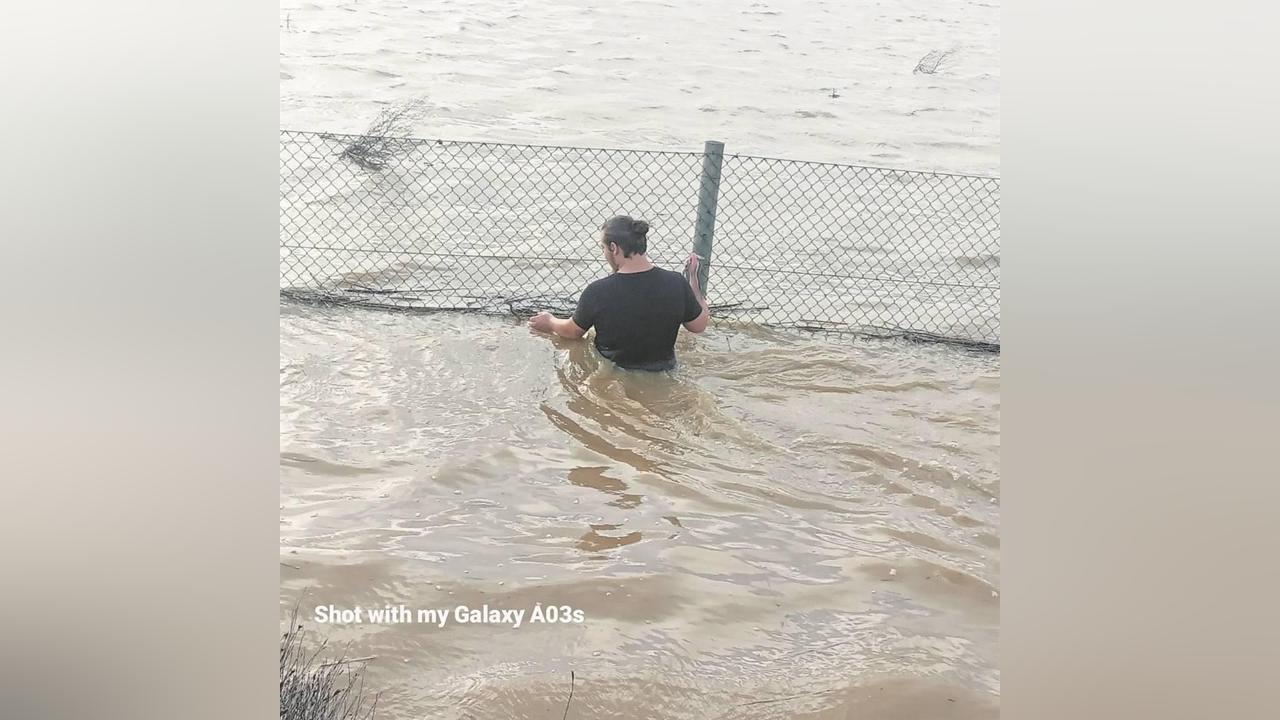Africa-Press – South-Africa. A snake handler and her son were hailed heroes after rescuing reptiles (snakes, lizards and chameleons) that were seen hanging on a fence in Rietvlei, Table View on Saturday.
This comes after the recent heavy rains which resulted in floods in parts of Table View, and the overflow of Rietvlei.
Davine Sansom, the snake handler, says after she received a call from a friend informing her about the reptiles hanging on the fence by the embankment against the R27, she and her son, André, left straight away.
“We caught many snakes, mainly skaapsteker, mole snakes, brown water snakes, skinks and chameleons,” she says.
In a bid to rescue the biggest skaapsteker, she was bitten and had no choice but to leave the snake behind.
“I had to leave him as my hands were filled with other reptiles. It was a very demanding task and the water was freezing. Some places having to swim as it was too deep,” Sansom says.
Braving the cold
Sansom says at one point she lost all feeling in her feet due to the water being so cold.
“I fell three times as I could not feel my feet. Going in and out of the water to put different species in the bins together was a major and scary experience as the water was extremely rough.”
Her feet got stuck in the mud twice, but luckily André was there to pull her out.
“By this time, the game rangers were in the rubber duck and they also managed to catch a few snakes and chameleons.
“Once we were done, we got a call to Grebe Avenue for three snakes. When we got there it was two skaapstekers and a feisty mole snake. My son was looking around and there he found a tiny skaapsteker,” she says.
Sansom says she wishes to thank everyone who helped, donated and went to so much trouble to help them.
“Plus a lovely lady who dropped off two pizzas and a cold drink,” she says.
She says even though saving these misunderstood creatures was quite hectic, the warm feeling in your heart at the end of the day makes up for it.
Sansom urges the community to be aware that snakes might land up in the garden, trying to get away from the water.
“Please contact me on 072 809 8908. Golden rule…keep your eyes on the snake at all times till I arrive. If you find other wild animals please contact me straight away,” she says.
Interesting facts
The Cape of Good Hope SPCA says the Western Cape is home to 41 different species of snake. Of these, only eight are capable of inflicting a bite that is merely painful, and only six species are considered potentially life-threatening or dangerous to humans or their pets.
“Of those six species of venomous snake, the one we get the most calls about here at the Cape of Good Hope SPCA is the puffadder. A thick-set, slow-moving snake of the adder (or viper) family, puffies pack a nasty bite,” the SPCA says.
While their venom is cytotoxic in nature (meaning it acts on living tissue cells), it is also slow acting, meaning you have a good chance of getting medical help before it’s too late.
“Human deaths from puffadder bites are rare, but a bite can still leave you in a bad way with lots of localised swelling at the bite site, extreme pain and tissue damage that could require many surgeries to patch up.”
Snake bite treatments for serious bites will cost you, the government or your medical aid anywhere from R100 000 to treat, the SPCA says.
If you are unsure of the species of a snake you come across in your garden, home or business premises, it is best to call your local snake-remover or the Cape of Good Hope SPCA for a positive ID.
According to the African Snakebite Institute (ASI), of the 3 500 to 4 000 cases of snake bites that are recorded in our country each year, only about 800 of these victims will see the inside of a hospital ward; 40% of them will show no symptoms or only experience very minor symptoms requiring nothing more than a Panado and some rest.
An average of 10 to 12 people, however, will die from bites inflicted by venomous species.
“This number could be higher as fatal snake bites in rural areas are not always accurately reported on and case histories get lost, according to the ASI.
“Rather than fearing snakes, we urge you to learn as much as you can about the ones we live alongside in an effort to better understand them and their behaviour. Snakes play an important role in our environment by controlling rodents and other pests.”
For More News And Analysis About South-Africa Follow Africa-Press






